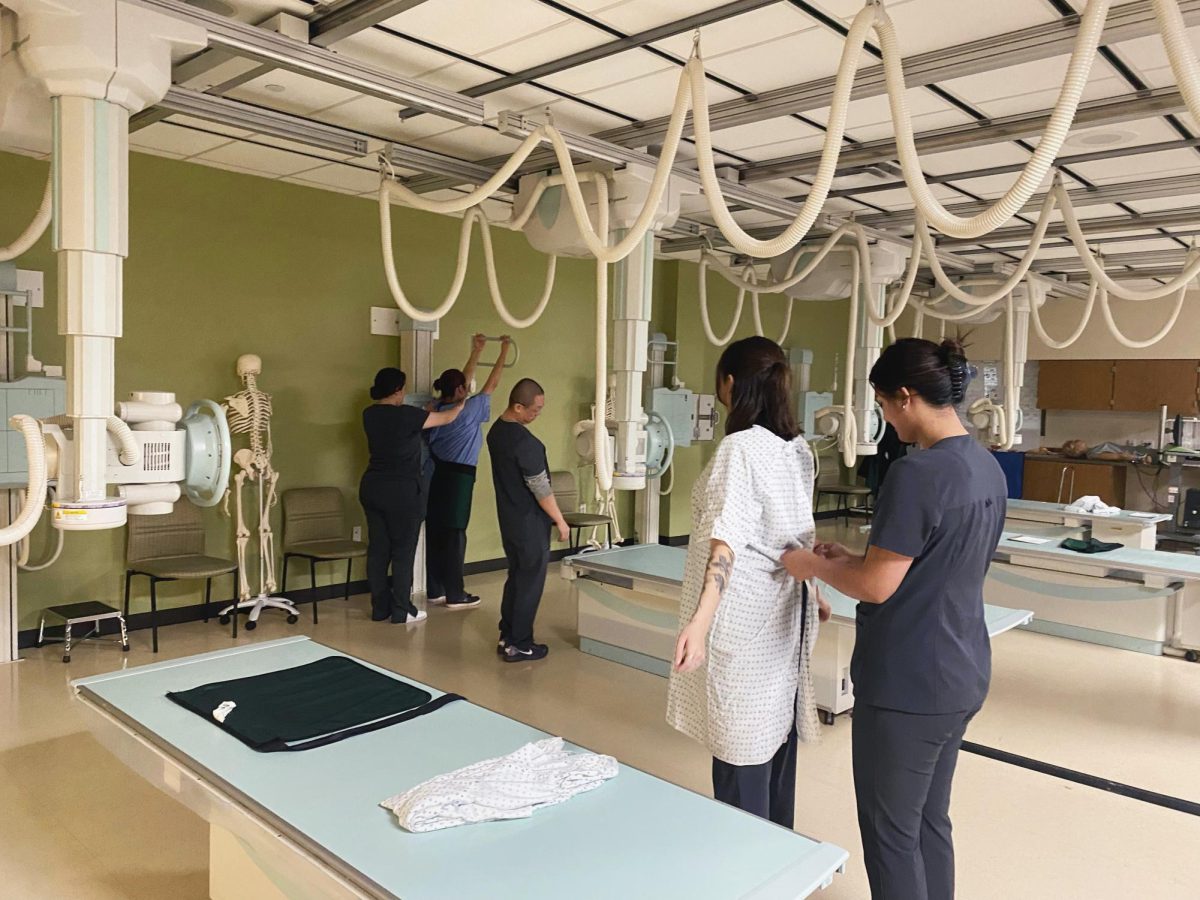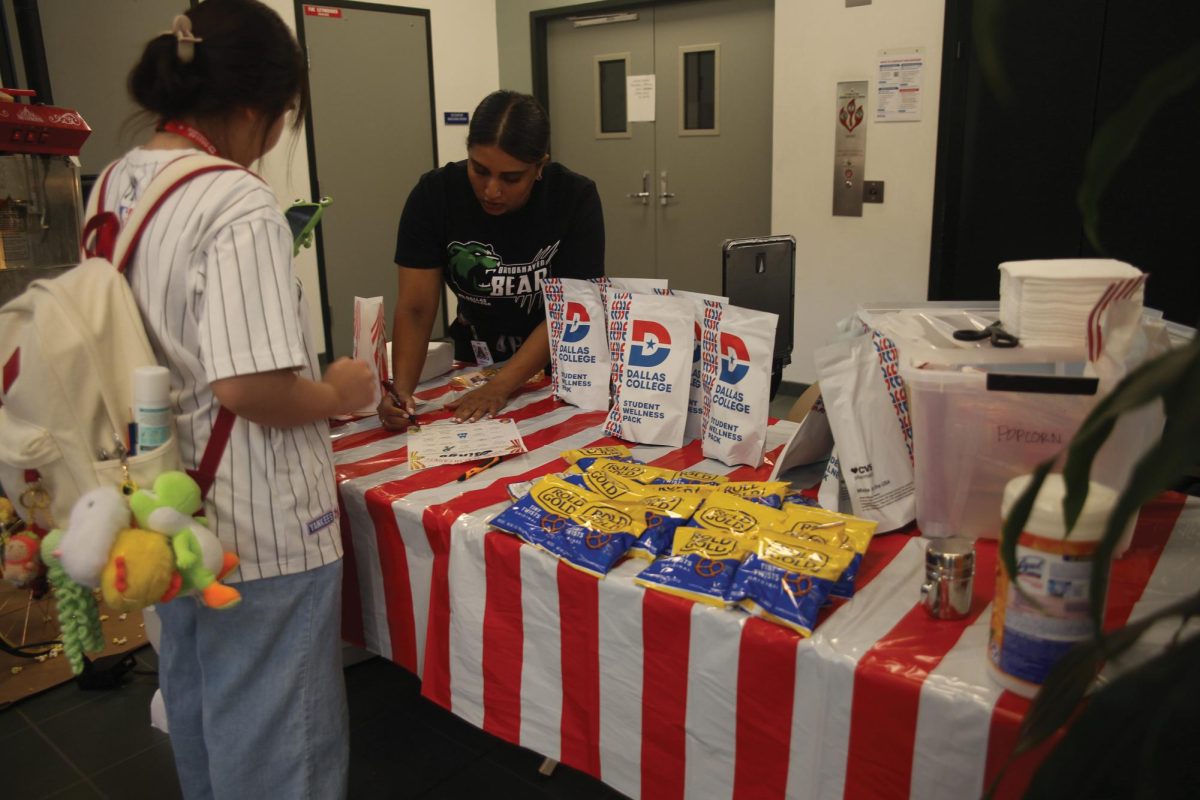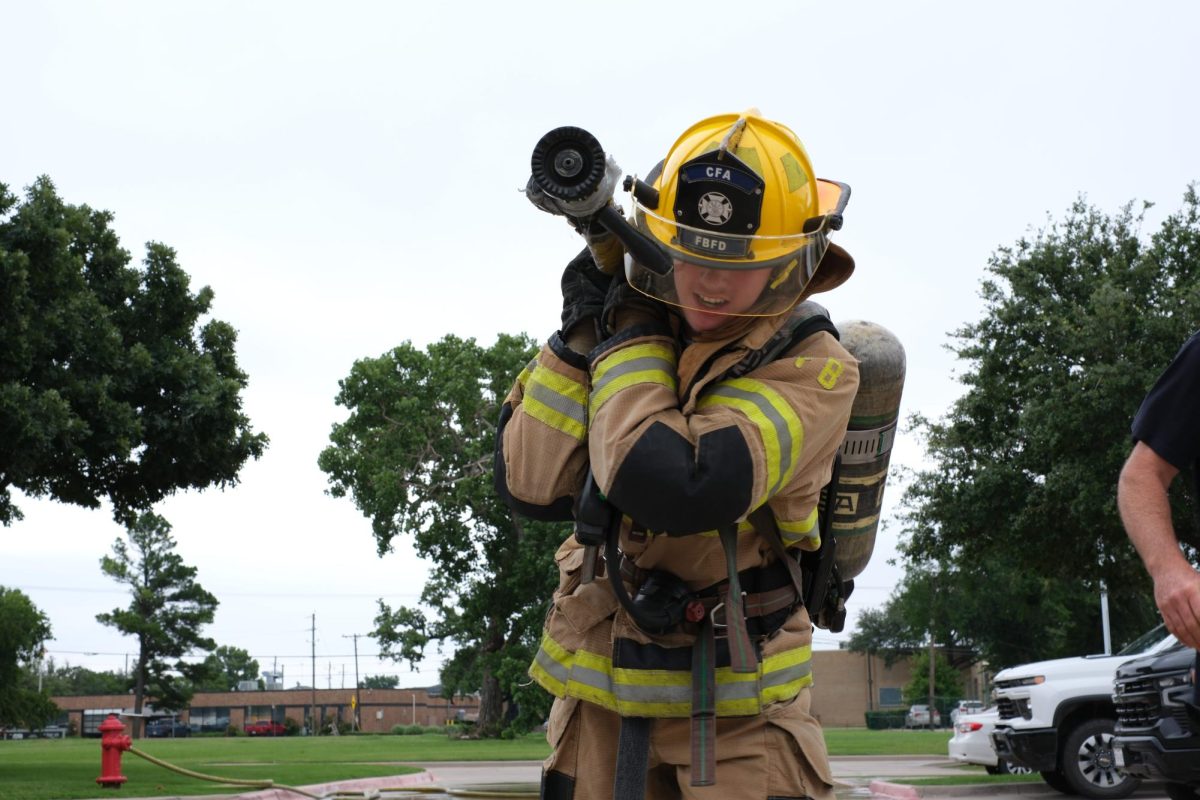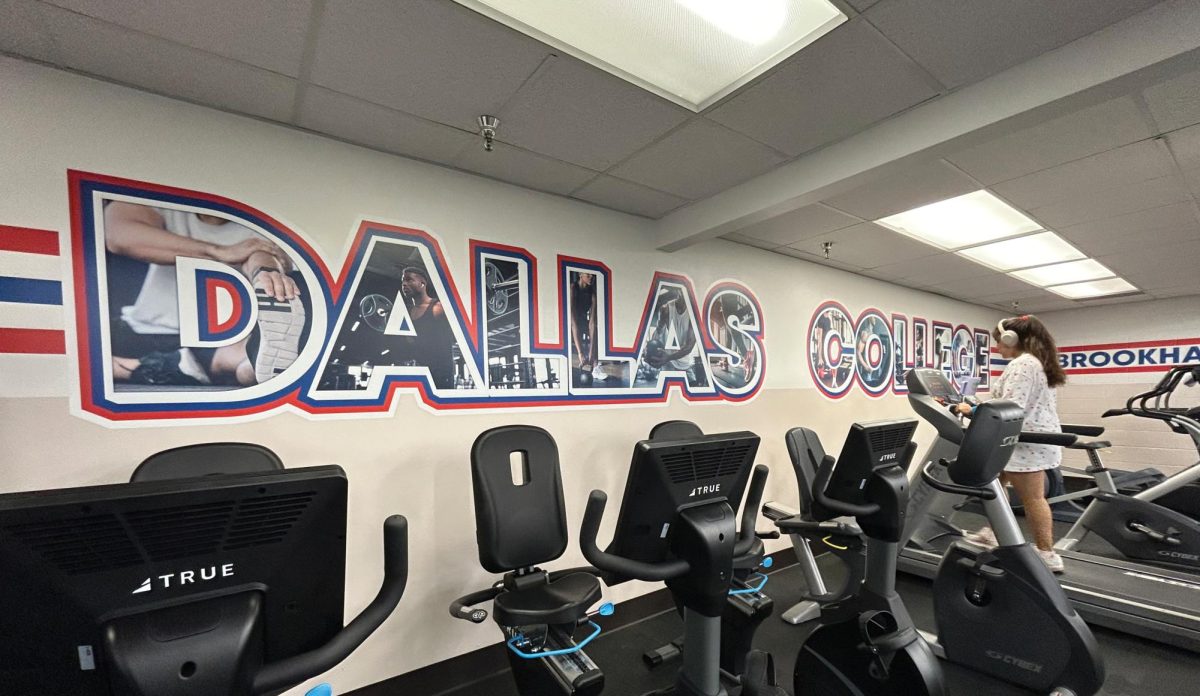Students in Dallas College’s Radiologic Sciences program, who started the program in June 2023, are taking part in clinical rotations to expand their imaging skills. The students will graduate in December, after which they will be eligible to sit for the American Registry of Radiologic Technologists’ exam to become registered radiologic technologists.
The 18-month program includes three semesters on campus during which students are taught the essentials of patient care, anatomy and radiologic physics. Students then spend the following five semesters in the clinical setting, working at major hospital systems in the Dallas area, such as Baylor Scott and White, Texas Health and UTSouthwestern.
Current students went through a detailed application process to obtain placement in the program.
The application process includes a written essay, resume and transcript with required prerequisites. The application process also includes a point system. Points are granted to an applicant based on numerous factors, such as a student’s prerequisite GPA, healthcare experience and past degrees earned.
The program accepts around 30 applicants every summer and spring semester.
Radiologic technology is often underestimated and commonly overlooked as a potential career option for those interested in the healthcare field. Student backgrounds vary, with students joining the program for varied reasons.
Student Nelly Hernandez said her interest in radiology grew when she had an X-ray exam of her hand done. She was curious as to what a radiologic technologist did “behind the scenes.”
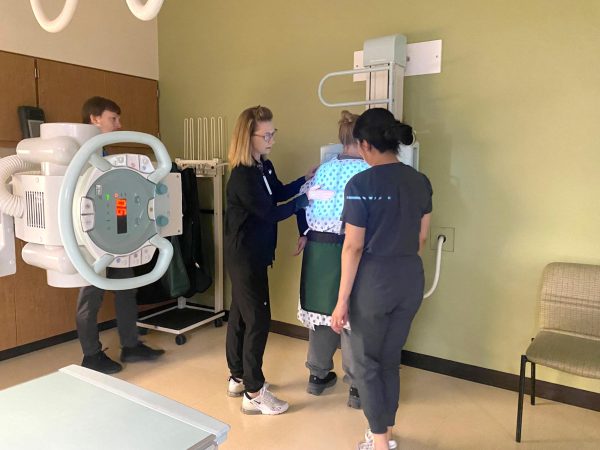
Fellow student Jen Cole said she chose the field because of its simplicity compared to other healthcare programs. “The program is short, and the job outlook looked good,” she said.
With the short length of the program comes its challenges. Students must demonstrate dedication to the program and commit a good portion of their time to classes and studying. During the lecture portion of the program, students can find themselves on campus six to eight hours a day, three or four days a week.
During the clinical portion, students work eight hours a day, four days a week. “It really takes commitment from the student to get through this program,” student Marco Bustos said. “There is little free time from the beginning to the end of this program.”
Students often rely on each other for not only educational support, but emotional support. A job in the radiology field does not stop with taking X-rays. Many students go on to become trained and certified in other modalities, such as computed tomography (CT), magnetic resonance imaging (MRI), mammography and interventional radiology.
Dallas College offers certificate programs for those modalities and students have the choice to apply to these certificate programs as early as their last semester of their radiologic technology program. The Brookhaven Campus has a CT scanner and an MRI scanner to aid in student education and experience.
Radiology students have much to look forward to following graduation. The graduating students said they are proud of the extensive work they put in for the program, though they are looking forward to catching up on some sleep.


